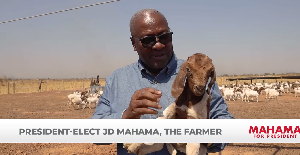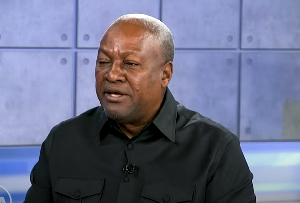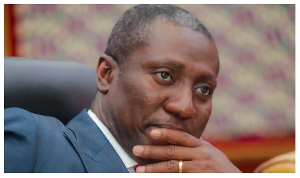Accra, Aug 2, GNA - Ghana, last year, imported nearly 1.3 billion dollars worth of metal engineering products ranging from bolts and nuts to automotive products of which 51 per cent were machinery, mechanical and transport equipment.
Mr Alan Kyerematen, Minister of Trade and Industry, gave the figures on Tuesday at a workshop for machine manufacturers for a project called "Technology Innovation Centre for Capital Goods" held in Accra.
He said the two programmes could not be implemented successfully without adequate supplies of machinery, equipment, spare parts and accessories and the country could also not depend solely on imported capital for the duration of the projects.
Mr Kyerematen observed the availability of skilled and semi-skilled manpower in capital goods and a resultant establishment of small enterprises throughout the country, especially in the urban centres at Tema, Kumasi, Accra, Takoradi to produce units of machinery, equipment, parts and components.
He said the worrying issue was whether the products were competitive in terms of quality and cost.
The Minister said the problem of low productivity was due to lack of suitable or modern machinery and equipment, resulting in non-enjoyment of economies of scale.
"It has also been observed that currently, we do not have any sizeable, modern and efficient commercial foundry in the country apart from what exists in the larger mining companies," Mr Kyerematen said.
Other problems, the Minister mentioned, related to quality of products because most of the capital items turned out were not based on engineering drawings which made for uniformity in the components produced.
Mr Kyerematen said the Trade and Industry Ministry had therefore launched the Technology Innovation Centre for Capital Goods to cater for the lapses and that with the flagship of integrated foundry, metalworking and machine tools could be produced commercially.
Feasibility studies on the project are underway and the outcome of the studies would determine the implementation period and the site of the project.
The participants were drawn from the GRATIS Foundation, Technology Consultancy Centre, the Suame Integrated Technology Transfer Unit, the National Board For Small Scale Industries, the President's Special Initiatives on Cassava and Oil Palm, as well as the Steering Committee members of the Capital Goods Project and the Ghana Railways Company.
It was organized by the Ministry of Trade and Industry in collaboration with the United Nations Industrial Development Organisation (UNIDO), which is also undertaking the Project.
The workshop would educate the participants on the Capital Goods Innovation Centre concept, examine Project Implementation procedures, and discuss the time frame for milestones to be achieved and the role of the participating agencies.
The capital goods sub-sector in Ghana is quite diverse with operators ranging from rural blacksmiths, micro urban metal firms, small and medium metal firms, scrap dealers to imported steel dealers and merchant capital good dealers.
Operators in capital goods, mostly metal work fabricators, are spread all over the regions and in most instances operate in clusters as Suame in Kumasi.
Their activities provide the economy with equipment, machinery, tools, parts and accessories replacement, and maintenance support to agro processing and food security, marine, plastic, mining, transport, energy, textile, sanitation and waste management sectors, among other things within the country.
Not much work has been done on it and there is very little documentation, despite the immeasurable contributions the sector is expected to make to the economy under the Industrial Reform and Accelerated Growth Programme and the Ghana Poverty Reduction Strategy.
Click to view details



Business News of Tuesday, 2 August 2005
Source: GNA
















